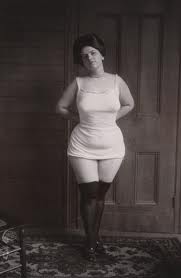First, some  numbers: one in four women in America takes a psychiatric medication. That compares to one in seven men. And women are nearly twice as likely to receive a diagnosis of depression or anxiety disorder than men are. Those stats come from a New York Times Op-Ed by psychiatrist and author Julie Holland, who argues that women are more sensitive than men by evolutionary design, and that fear of being labeled “hysterical” (yes, by men) compels women to apologize for their emotions, and worse, stifle them with drugs. “The most common antidepressants,” Holland writes, “which are also used to treat anxiety, are selective serotonin reuptake inhibitors (S.S.R.I.s) that enhance serotonin transmission. S.S.R.I.s keep things “all good.†But too good is no good. More serotonin might lengthen your short fuse and quell your fears, but it also helps to numb you, physically and emotionally. These medicines frequently leave women less interested in sex. S.S.R.I.s tend to blunt negative feelings more than they boost positive ones. On S.S.R.I.s, you probably won’t be skipping around with a grin; it’s just that you stay more rational and less emotional. Some people on S.S.R.I.s have also reported less of many other human traits: empathy, irritation, sadness, erotic dreaming, creativity, anger, expression of their feelings, mourning and worry.” Yikes! What to do? “We need to stop labeling our sadness and anxiety as uncomfortable symptoms,” says Holland. “And to appreciate them as a healthy, adaptive part of our biology.”
numbers: one in four women in America takes a psychiatric medication. That compares to one in seven men. And women are nearly twice as likely to receive a diagnosis of depression or anxiety disorder than men are. Those stats come from a New York Times Op-Ed by psychiatrist and author Julie Holland, who argues that women are more sensitive than men by evolutionary design, and that fear of being labeled “hysterical” (yes, by men) compels women to apologize for their emotions, and worse, stifle them with drugs. “The most common antidepressants,” Holland writes, “which are also used to treat anxiety, are selective serotonin reuptake inhibitors (S.S.R.I.s) that enhance serotonin transmission. S.S.R.I.s keep things “all good.†But too good is no good. More serotonin might lengthen your short fuse and quell your fears, but it also helps to numb you, physically and emotionally. These medicines frequently leave women less interested in sex. S.S.R.I.s tend to blunt negative feelings more than they boost positive ones. On S.S.R.I.s, you probably won’t be skipping around with a grin; it’s just that you stay more rational and less emotional. Some people on S.S.R.I.s have also reported less of many other human traits: empathy, irritation, sadness, erotic dreaming, creativity, anger, expression of their feelings, mourning and worry.” Yikes! What to do? “We need to stop labeling our sadness and anxiety as uncomfortable symptoms,” says Holland. “And to appreciate them as a healthy, adaptive part of our biology.”
